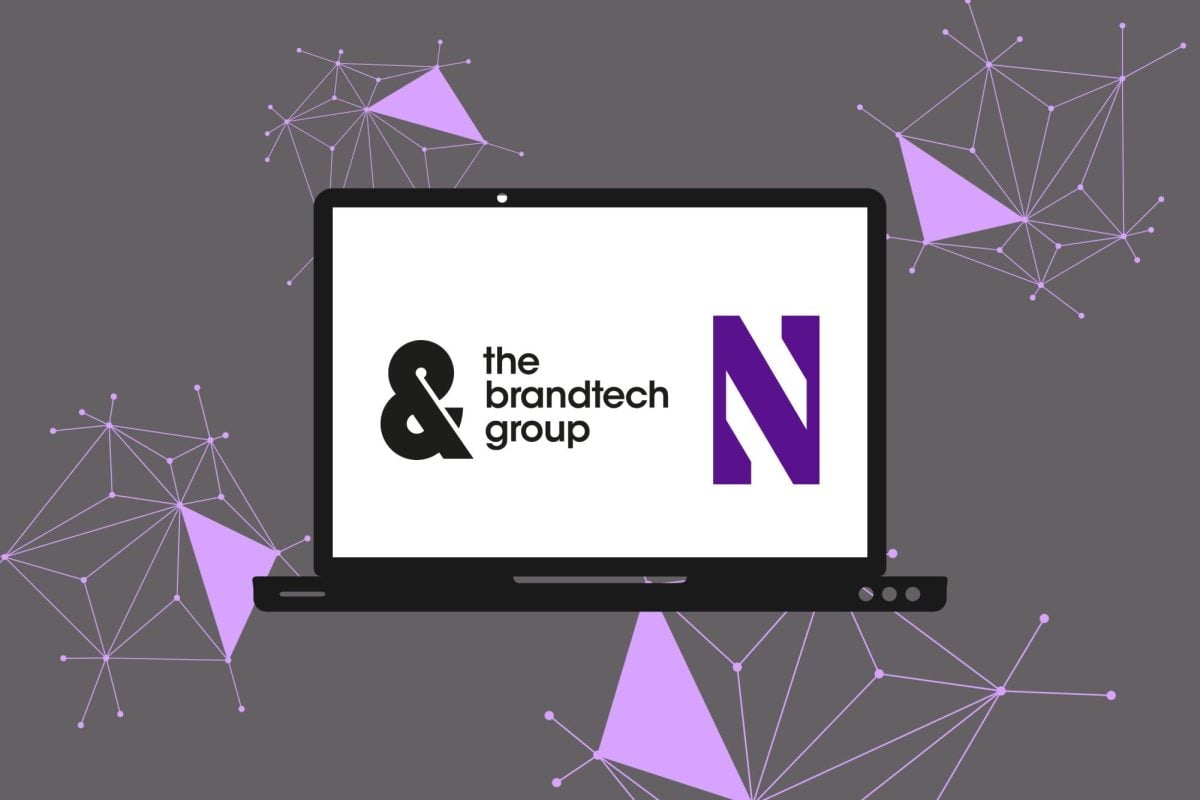Throughout his time working in marketing and communications, there’s one thing that Communication Prof. Anas Ghazi (’15) said he’s noticed in the sphere of marketing storytelling: The disconnect between how the industry operates and what is taught in the classroom.
For the last three years, Ghazi said his goal as a professor has been to close the divide between theory and practical application. For his Digital Storytelling course, he’s turned to AI tools to provide his students with real-life experience working in marketing storytelling.
“There are ingredients to making a story work,” Ghazi said. “With AI being the forefront of everything that we’re doing, there has to be a technology out there that can help my students learn the skills within the AI realm and tell stories that matter.”
In his search for the perfect AI tool, Ghazi found The Brandtech Group, a marketing technology company that owns the generative AI marketing platform known as Pencil Pro.
Ghazi said he tested the product first, going through the training modules before working with the team at Brandtech to integrate Pencil into his course. Students received the prompt for their live midterm on the first day of the class, Ghazi said, which instructed them to pitch a marketing campaign based on a provided Request for Information, a formal business document used to collect information for projects or contracts.
“I’ve never worked with an AI tool like this before,” said Communication graduate student Thea Deng, who is enrolled in Ghazi’s class. “Pencil Pro integrates major generative AI tools all in one, so it doesn’t just create text or video or image. What makes it so special is it helps evaluate the outputs that you give, and it gives you feedback.”
The final for the class similarly sets students in front of a panel of AI experts, the client, a coach and Ghazi to evaluate who presented their ideas best using the AI tools in the platform.
The panel will then decide which campaign goes live, which also determines which students will be selected for the two Brandtech internships offered at the end of the course.
“Personally, I have some internship experience, but I don’t have experience (developing) a whole campaign,” said Communication graduate student Cindy Xinya Gong, who is enrolled in the course. “I think this class really helped me know about the flow and structures of building up a real-world campaign for the company.”
According to Microsoft’s 2024 Work Trend Index, 71% of employers stated that they would prefer an AI-skilled candidate with less experience than a more experienced candidate with no AI skills.
Ghazi said similar reports on company priorities illustrate the need to be literate in generative AI tools.
“There’s such a need for this talent, but the supply isn’t there if you will,” Ghazi said. “I think that’s the part I’m excited about — giving my students tangible skills that they can officially say, ‘We can do these things that are so in demand in the AI world.’”
Although only two internship spots are available, Ghazi said by the end of the quarter, all students in the class will have benefitted from the experience of storytelling in the professional world.
Students will also receive a LinkedIn certification for their new AI skills, helping them stand out to employers, Ghazi said.
“I remember when I was a student, I was like ‘I wish someone spoke to me about, how do I get my story heard? How do I navigate corporate politics? How do I position myself in a way that is effective and meaningful?’” Ghazi said. “As a practitioner, I’m able to bring that from the boardroom to the classroom, and this internship is just the beginning.”
Email: cassiesun2027@u.northwestern.edu
X: @cassiesunL
Related Stories:
— Northwestern Security and AI Lab continues to explore relationship between cybersecurity, AI
— Student startup MetaFrazo uses AI to break down language barriers







